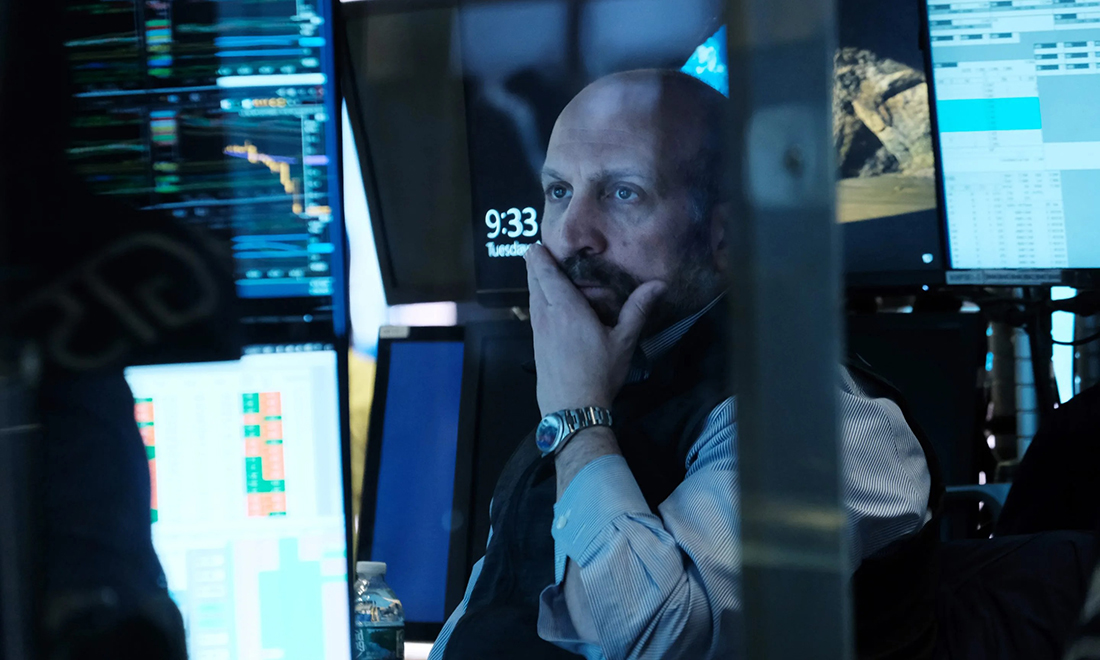
盡管億萬富翁投資者、華爾街分析師、甚至前美聯(lián)儲官員一年多來一直預測美國經濟會陷入衰退,但事實證明,美國經濟具有令人難以置信的彈性。失業(yè)率保持在3.6%的歷史低點附近,亞特蘭大聯(lián)邦儲備銀行(Atlanta Fed)估計第一季度GDP增長1.5%。但安永-博智隆(EY-Parthenon)首席經濟學家格雷戈里?達科(Gregory Daco)警告稱,近期銀行業(yè)危機之后,一系列負面因素結合在一起將在未來幾個月“拖累”經濟。
“經濟狀況不佳。這不是普通流感,而是喉嚨痛。”他在上周三的一份研究報告中寫道。他提到了頑固的通貨膨脹、高利率以及企業(yè)和消費者可獲得的貸款減少,并補充說,“在情況好轉之前可能會進一步惡化”,安永-博智隆繼續(xù)預測今年年中美國將出現經濟衰退。
達科預測經濟衰退的關鍵因素是美國消費狀況不佳。過去一年里,即使面對四十年來最高的通貨膨脹率和大舉加息,美國人的消費依舊強勁,提振了美國經濟。這一點至關重要,因為僅消費支出一項就占了美國GDP的近70%。但達科表示,最近幾周的消費“明顯降溫”,他相信這種情況將持續(xù)全年。
美國2月份零售銷售額環(huán)比下降0.4%,顯示消費者感受到了價格高企帶來的壓力。在疫情期間作為零售商支柱的好市多(Costco)上周三公布,其同店銷售額三年多來首次出現下降。美國3月份同店銷售額下降1.5%,而電子商務銷售額下降12.7%。
達科接著警告說,過去幾年里支撐美國經濟的緊張的勞動力市場也將出現破裂。他寫道:“我們與企業(yè)高管的談話表明,許多行業(yè)的招聘力度都明顯縮減。企業(yè)投資活動正在疲軟。”他指出,最新的ISM制造業(yè)指數顯示,該行業(yè)的新訂單、就業(yè)和積壓訂單都在收縮。
達科說,他認為在夏末,當美聯(lián)儲在懷俄明州杰克遜霍爾召開年度央行研討會時,“美國經濟或已陷入衰退”,而經濟衰退造成的失業(yè),甚至“潛在的不利金融市場影響”將導致央行官員降息。
他寫道:“正如我之前強調的那樣,盡管我們沒有看到廣泛經濟失衡的證據,但衰退往往是非線性事件。”他認為,經濟低迷可能會以緩慢而不可預測地方式展開。(財富中文網)
譯者:中慧言-王芳
盡管億萬富翁投資者、華爾街分析師、甚至前美聯(lián)儲官員一年多來一直預測美國經濟會陷入衰退,但事實證明,美國經濟具有令人難以置信的彈性。失業(yè)率保持在3.6%的歷史低點附近,亞特蘭大聯(lián)邦儲備銀行(Atlanta Fed)估計第一季度GDP增長1.5%。但安永-博智隆(EY-Parthenon)首席經濟學家格雷戈里?達科(Gregory Daco)警告稱,近期銀行業(yè)危機之后,一系列負面因素結合在一起將在未來幾個月“拖累”經濟。
“經濟狀況不佳。這不是普通流感,而是喉嚨痛。”他在上周三的一份研究報告中寫道。他提到了頑固的通貨膨脹、高利率以及企業(yè)和消費者可獲得的貸款減少,并補充說,“在情況好轉之前可能會進一步惡化”,安永-博智隆繼續(xù)預測今年年中美國將出現經濟衰退。
達科預測經濟衰退的關鍵因素是美國消費狀況不佳。過去一年里,即使面對四十年來最高的通貨膨脹率和大舉加息,美國人的消費依舊強勁,提振了美國經濟。這一點至關重要,因為僅消費支出一項就占了美國GDP的近70%。但達科表示,最近幾周的消費“明顯降溫”,他相信這種情況將持續(xù)全年。
美國2月份零售銷售額環(huán)比下降0.4%,顯示消費者感受到了價格高企帶來的壓力。在疫情期間作為零售商支柱的好市多(Costco)上周三公布,其同店銷售額三年多來首次出現下降。美國3月份同店銷售額下降1.5%,而電子商務銷售額下降12.7%。
達科接著警告說,過去幾年里支撐美國經濟的緊張的勞動力市場也將出現破裂。他寫道:“我們與企業(yè)高管的談話表明,許多行業(yè)的招聘力度都明顯縮減。企業(yè)投資活動正在疲軟。”他指出,最新的ISM制造業(yè)指數顯示,該行業(yè)的新訂單、就業(yè)和積壓訂單都在收縮。
達科說,他認為在夏末,當美聯(lián)儲在懷俄明州杰克遜霍爾召開年度央行研討會時,“美國經濟或已陷入衰退”,而經濟衰退造成的失業(yè),甚至“潛在的不利金融市場影響”將導致央行官員降息。
他寫道:“正如我之前強調的那樣,盡管我們沒有看到廣泛經濟失衡的證據,但衰退往往是非線性事件。”他認為,經濟低迷可能會以緩慢而不可預測地方式展開。(財富中文網)
譯者:中慧言-王芳
Despite consistent recession predictions from billionaire investors, Wall Street analysts, and even former Federal Reserve officials for over a year now, the U.S. economy has proved to be incredibly resilient. The unemployment rate remains near record lows at 3.6%, and the Atlanta Fed estimates GDP grew 1.5% in the first quarter. But Gregory Daco, chief economist at EY-Parthenon, warned this week that a combination of factors in the wake of the recent banking crisis will “weigh on” the economy in the coming months.
“The economy is unwell. It’s not the flu, but it is a throat ache,” he wrote in a Wednesday research note. Citing stubborn inflation, high interest rates, and a reduction in the availability of loans for businesses and consumers, he added that “it could get worse before it gets better” and his firm continues to project a midyear recession.
The key to Daco’s recession forecast is the ailing American consumer. Even in the face of four-decade-high inflation and rapid interest rate hikes, Americans have buoyed the economy with their spending over the past year. That’s critical, because spending alone represents nearly 70% of U.S. gross domestic product. But there’s been “significant cooling” in spending over recent weeks, Daco said, and he believes that will continue throughout the year.
Retail sales slowed 0.4% month over month in February in a sign consumers are feeling the pinch of high prices. And Costco, which was a pillar of strength among retailers throughout the pandemic, revealed its first same-store sales decrease in over three years Wednesday. U.S. same-store sales dropped 1.5% in March, while e-commerce sales were down 12.7%.
Daco went on to warn that the historically tight labor market that has helped buoy the U.S. economy over the past few years may be cracking as well. “Our conversations with business executives indicate that hiring efforts have been scaled back notably across numerous sectors,” he wrote. And “business investment activity is softening,” he added, pointing to the latest ISM manufacturing survey index, which showed new orders, employment, and backlogs all contracting in the sector.
Daco said he believes that by late summer, when the Federal Reserve meets for its annual central bank symposium at Jackson Hole, Wyo., “the economy will already be in a recession,” and the job losses and even “potential adverse financial market ramifications” from that recession will lead central bankers to cut rates.
“As I’ve stressed before, even though we do not see evidence of broad-based economic imbalances, recessions are often non-linear psychological events,” he wrote, arguing economic downturns can play out slowly and unpredictably.






